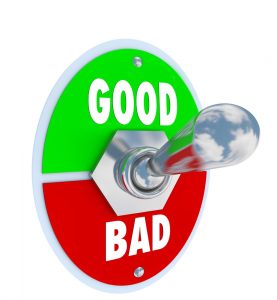Turn bad publicity into good PR
Posted On 9/1/2023 Sometimes, bad publicity is inevitable. Even when you and your organisation behave responsibly, you always run the small risk of an unexpected PR disaster. In the information age, bad publicity can reach the masses before you can even mount a defense.
Sometimes, bad publicity is inevitable. Even when you and your organisation behave responsibly, you always run the small risk of an unexpected PR disaster. In the information age, bad publicity can reach the masses before you can even mount a defense.
The only thing worse than having your image tarnished in the public light after you’ve done everything within your power to protect yourself is to find out you’re the one who caused the disaster. For every rogue employee saying something stupid to the media, there’s a poor senior-level decision being made.
What to do when your business gets bad publicity
Respond quickly, honestly and decisively. Don’t get defensive. If you are in the wrong, it’s vital to own up and apologise. Never say “no comment” – it sends the message that you are in the wrong but feel no remorse – and the press may keep digging for dirt. Face up to the situation and you can begin to restore the reputation of your business.
In a PR crisis, communication is the key to managing it. Keep the media, customers, your staff and suppliers informed. Tell your side of the story with a written statement and make sure the head of the business is available to talk to the press and others about what went wrong and what is being done about it.
Meanwhile, ensure that your employees do not talk to the press without permission and field enquiries from journalists to the right person.
Remember that bad publicity can offer a chance for your business to show how decent it is. Look at it as an opportunity. You can build better customer relationships by solving problems. Want to turn an angry customer into a dedicated one? Fix their problem! A negative experience can spread through social circles pretty quickly. But one that becomes positive? That travels well too. Pro-tip: act like a human being. After all, 70% – 80% of customers will return if you resolve their complaint, and if you go out of your way to do so in a highly positive manner, you may even benefit from it.
Preventing bad press coverage
Planning and preparation can significantly reduce the chances of getting bad press. Staff training is essential – your employees are ambassadors for your firm. No matter what their job, any member of staff has the power to enhance or ruin the reputation of your business.
Make sure your staff understand the importance of customer service and are the living embodiment of your firm’s positive brand values. Put in place procedures for handling customer complaints so that a small problem does not become a big headache. Research shows that customers who are happy with the way their complaint was handled are more likely to spread good word of mouth recommendations.
What to do after a PR crisis
After getting bad publicity you actively need to produce some positive PR. Now is the time to emphasise some positive stories, such as improved practices and community involvement. At the same time, make sure you are doing business in the most honourable way and keeping your customers satisfied.
Key element to success: listen
If one person complains, they could be wrong. If a lot of people complain, you’re wrong. This is a data-focused age, so use your head. If you measure high ratings, and good customer satisfaction, yet one very angry person blows up at you on Twitter, perhaps it is just one angry person on Twitter. Angry people are inescapable, and the most unreasonable are often the loudest. But don’t miss an opportunity to collect valuable feedback. Additionally, if a lot of people are upset with you, you should listen to them. Customer service and feedback are two areas where democracy should prevail. If the majority think your policy is bad or your product needs improvement, then listen. They’re probably right.
